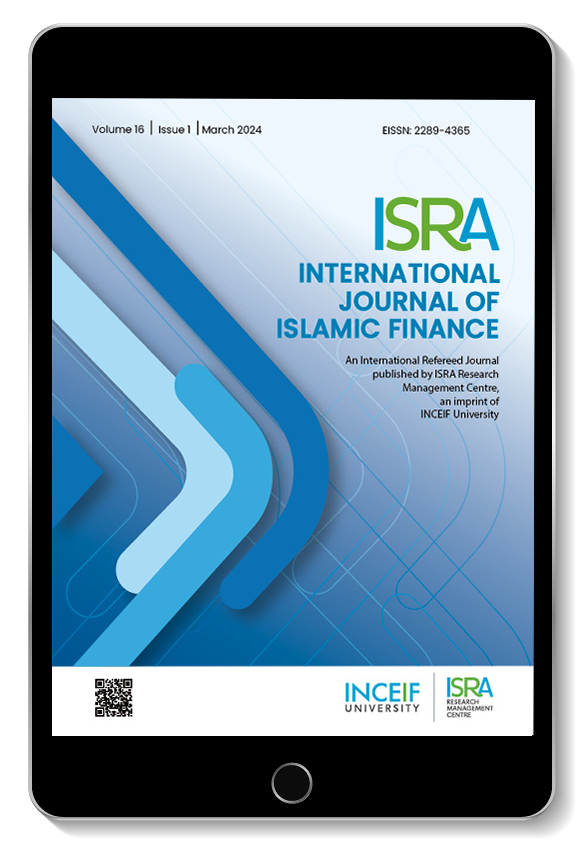马来西亚伊斯兰银行Sharīʿah治理实践的综合评估
IF 1.4
Q2 BUSINESS, FINANCE
引用次数: 6
摘要
目的:本研究旨在实证调查沙迦治理框架(SGF)对改善马来西亚伊斯兰银行沙迦治理实践的影响,并解决其相关问题。设计/方法/方法采用全面的问卷调查进行数据收集,该问卷调查主要基于SGF-2010和文献中的论点。本研究的样本包括沙迦治理中的关键官员,包括马来西亚伊斯兰银行的高级管理人员、沙迦委员会(SC)和沙迦团队成员。调查结果从问卷调查中获得的分数分析——包括41个项目,代表了沙迦治理中当前的重大问题——表明SGF-2010在实现其目标和解决相关问题方面取得了成功。配对样本t检验的结果显示,根据马来西亚国家银行的上述指导方针,马来西亚伊斯兰银行的沙迦治理实践有了显着改善。研究局限/启示本研究的发现表明,在沙迦治理的五个基本支柱中,即问责制、独立性、能力、保密性和透明度,SGF-2010带来的大部分改进和变化可归因于问责制和责任。但是,安全监督小组的其他组成部分仍有改进的余地,特别是在安全监督小组和沙迦小组的透明度和独立性方面。原创性/价值考虑到shari - hah治理的重要性,并考虑到最近在马来西亚伊斯兰银行中改善shari - hah合规文化的努力,本研究是第一次尝试以经验和全面地深入研究这一主题,并通过直接联系伊斯兰银行业的主要参与者并提供第一手的亮点来评估其主要问题。本研究还将基于SGF-2010的研究结果与SGF-2017和沙迦治理政策文件(SGPD-2019)的要求进行了比较,这些文件在本研究完成后发布(如适用)。本文章由计算机程序翻译,如有差异,请以英文原文为准。
A comprehensive appraisal of Sharīʿah governance practices in Malaysian Islamic banks
Purpose
This study aims to empirically investigate the impact of the Sharīʿah Governance Framework (SGF) on improving Sharīʿah governance practices in Islamic banks in Malaysia and in addressing its related issues.
Design/methodology/approach
Data collection was carried out using a comprehensive questionnaire survey, which was developed primarily based on SGF-2010 and arguments in the literature. The sample for this study includes key functionaries in Sharīʿah governance including senior managers, Sharīʿah committee (SC) and Sharīʿah team members of Islamic banks in Malaysia.
Findings
The analysis of scores obtained from the questionnaire survey–including 41 items representing current significant issues in Sharīʿah governance–indicates that SGF-2010 has been successful in achieving its objectives and in addressing related issues. The results of the paired sample t-test show significant improvements in Sharīʿah governance practices in Malaysian Islamic banks in light of the aforementioned guideline by Bank Negara Malaysia.
Research limitations/implications
Findings of this research suggest that among the five essential pillars of Sharīʿah governance, namely, accountability and responsibility, independence, competence, confidentiality and transparency, most of the improvements and changes brought about by SGF-2010 are attributable to accountability and responsibility. However, there is still room for improvement in other components of the SGF, particularly with regard to transparency and the independence of the SC and Sharīʿah team.
Originality/value
Given the importance of Sharīʿah governance and considering recent endeavours to improve Sharīʿah-compliant culture among Islamic banks in Malaysia, this research is among the first attempts to empirically and comprehensively delve into this subject and evaluate its main issues by directly contacting key players in the Islamic banking industry and providing first-hand highlights. This research also compares the findings based on SGF-2010 with the requirements of SGF-2017 and Sharīʿah Governance Policy Document (SGPD-2019), which were released after this research was completed, where applicable.
求助全文
通过发布文献求助,成功后即可免费获取论文全文。
去求助
来源期刊

ISRA International Journal of Islamic Finance
BUSINESS, FINANCE-
CiteScore
3.40
自引率
17.40%
发文量
18
审稿时长
20 weeks
期刊介绍:
It is the aspiration of the editorial committee that IJIF achieves the highest rank in quality and substance. It is thus our aim that the journal be carried in the Thompson Reuters’ ISI and Scopus databases. By ensuring high standards in articles published in Islamic finance we ensure that further innovation and research is carried out and promoted in the Islamic finance industry and academia. IJIF publishes 2 issues per annum.
 求助内容:
求助内容: 应助结果提醒方式:
应助结果提醒方式:


